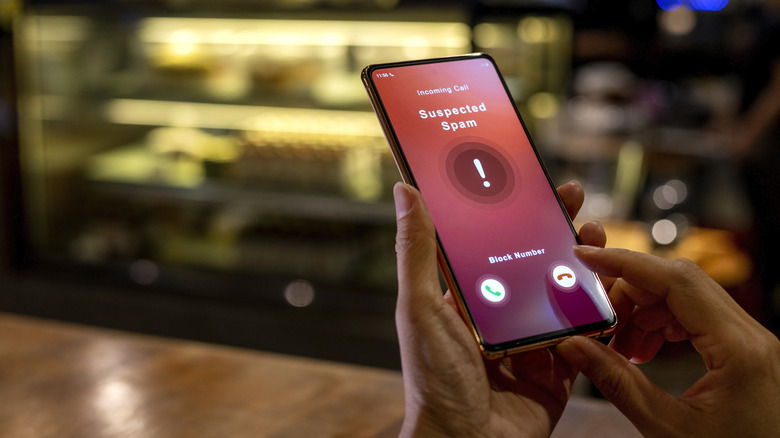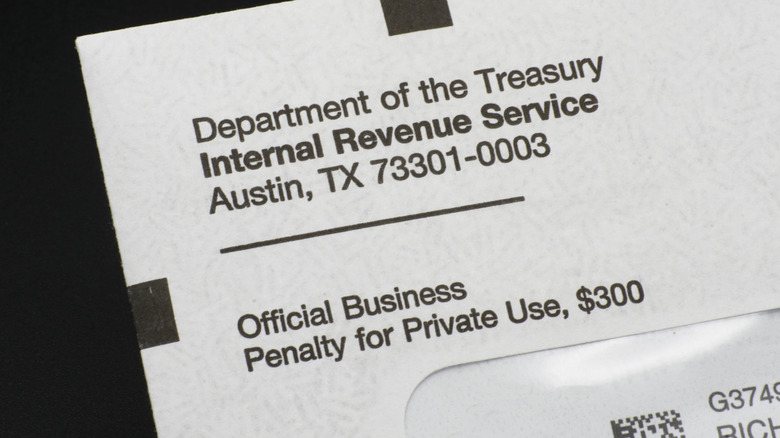11 Financial Scams Senior Citizens Need To Be Aware Of
In retirement, senior Americans are able to sit back and relax after a lifetime of hard work. Older age is meant to be a time of reaping the rewards of financial planning that was years in the making. A combination of Social Security and pension checks, personal savings, and retirement investments combine to replace the salary that once flowed in as a tradeoff for years of commitment.
But sadly, senior citizens are often the target of financial scams. Seniors are prime targets for the modern thief due to their long-term savings accumulation and the potential for a weaker grasp on novel technologies and modern tools of malfeasance. This creates the need for seniors and their loved ones to remain vigilant when it comes to common schemes that criminals rely on. The tricks that criminals use today run the gamut, with 58% of scammers deploying old-fashioned tactics like phone, postal fraud, and even face-to-face engagement. All told, scammers snatched almost $9 billion from Americans in 2022, with those over 70 being hit the hardest. 70- to 79-year-olds lost $1,000 per theft, on average (and those over 80 averaged losses of $1,674).
There is a silver lining, however. Much of the financial fraud in the country follows some of the same tried and true patterns, making them easier to spot if you've got your guard up. These are the most common approaches that affect senior citizens.
Basic robocall and recording schemes
The first scheme that seniors should be on the lookout for is the standard robocall. Social engineering ploys are constantly making the rounds, and scammers utilize this approach to great effect. Social engineering is the process of manipulating a victim into divulging sensitive information all on their own through the use of common social frameworks. Scammers aren't the only ones deploying these tactics, however. A British rail company sent out a Covid bonus notification email during the height of British lockdown measures. Employees who clicked through the link and provided their details were instead offered a message telling them that there was no bonus, and that they had been suckered by the company's own security test. This just goes to show how common and difficult to identify these tactics have become.
Criminals employing the robocall scheme are often looking to record snippets of people's voices. A common goal is capturing the word "yes," for later use in validating large credit or debit card charges. Pairing this powerful spoken word with a stolen credit card can give thieves all that they need to run riot with a victim's finances. Stay on the lookout for calls from strange numbers with repeated recordings that ask things like "can you hear me?" or, "are you happy with X provider?" which are designed specifically to elicit the "yes" response.
The grandparent con
Another core tactic that scammers will use to entrap a senior is the grandparent con. Thieves will often call older Americans, starting the call with: "Hi Grandpa (or Grandma), do you know who this is?" All it takes is a name to slip out of their victim's mouth and they've got the opening they need.
This approach allows a criminal to extract a trusted identity that they can then assume seamlessly. Rather than trying to convince their victim of who they are, they let an unsuspecting target fill this gap in themselves. When the person on the other end of the phone identifies their fraudster as someone known to them, the trust required to steal something of value is inherently established. From here, a thief might ask for a loan or gift in order to get out of a bind of some sort. This will involve making a cash transfer, often through the use of prepaid gift cards.
Defending against this kind of threat relies on the use of common experiences or knowledge between loved ones. The best kind of safe financial loan or gift is made in person. However, if you are going to send money to someone who isn't in the same room, verify some personal information that you both know — like where you spent last Thanksgiving or a dog's name. The scam relies on the victim's misidentification of a voice, but this bluff doesn't work when it comes time to validate identity.
False investment scams
Seniors are some of the most sought after targets for fake investment advisors. Real financial advisors might reach out to potential new clients in order to offer their services, but this kind of outreach comes with information that proves their identity. Advisors in the investment space must also be registered and licensed, meaning a potential client can look them up without hassle.
Fake advisors will often take one of two distinct approaches. There's the great-returns-guy, who touts almost unbelievable numbers for their existing clients. These ones will talk a big game and might even come armed with some kind of doctored prospectus. They'll promise the world and if you challenge them, it often becomes clear that they're a little too eager for your business — especially for someone who is doing so well in the market already. The other approach prizes patience and calm, and can be a little harder to spot. These false advisors prioritize safe investments, like corporate CDs or even bond funds. The outcome is the same, however. Those who "invest" with these fraudsters get nothing more than lost funds and an advisor who can't be reached once the money is transferred. Looking up anyone you're considering trusting with your money along with the word "scam" is a surefire way to weed out fakes.
Tech support rackets
Scammers have come to rely on knowledge gaps in their victims. Exploiting these weaknesses is often what allows a thief to pilfer their targets' bank accounts or personal data; it's truly a difference maker in the scammer's arsenal. With that being said, one of the biggest areas that scammers try to exploit among older victims is their utilization of modern technologies. Scammers approach their targets, posing as representatives of Microsoft, Apple, or Adobe, and offer their assistance with technical issues, including upgrades, connectivity problems, or any other buzzword that might allow them to get a foot in the door. The YouTuber Kitboga is a fantastic illuminator of these schemes. He spends hours playing a cat-and-mouse game with tech support scammers to waste their time. He notes that the longer they spend chasing him, the less time they have to steal from others. In his videos, it's clear that another tactic is the promise of a refund due back to the customer.
Once they find a willing participant, their next move is to gain remote access to the victim's computer. They then work to lock them out of the system or spoof a banking website to create their hook. Only working with individual service providers you trust with your computer is a great way to defend against this kind of threat. It's also worth noting that Microsoft and others aren't known to cold call customers with the "good news" that they're due a refund.
Medicare fraud
Medicare fraud is one that often flows through a senior rather than targeting them specifically. Phony medical care providers will contact seniors about their Medicare coverage, offering consultations or new evaluations to monitor their health or deal with a preexisting condition. They may or may not actually conduct some sort of makeshift medical appointment (which has been known to happen on occasion), but once they've extracted enough information from their victims the next step is to fraudulently bill Medicare, looking to get paid for their "services." This one won't target your bank account directly, but in order to submit a bill, the scammer must gain access to intimate personal information. This can be used later in an effort to steal identities, which will pose a direct threat to the victim.
The best way to defuse a Medicare fraud scheme is to only trust your own doctor — or those that he or she might recommend for a referral. Medical providers won't generally cold call potential patients, and with the lumbering nature of the government itself, it's unlikely that the Medicare service even has the capacity to call its users out of the blue to offer checkups or any other services.
Government imposter plays
Speaking of imposters, Medicare isn't the only government body that scammers will pose as. Another big one is the IRS, but seniors are also subjected to scam callers posing as Social Security Administration officials. These types of calls often act as phishing expeditions, with thieves looking to extract personal data that might be valuable later. However, they typically devolve into a more threatening encounter with great haste.
The ultimate goal of these types of contacts is typically to notify the victim of an outstanding debt that must be paid to the federal government. Tax season is notoriously saturated with these kinds of calls, but they can and do happen without restrictions across the year. Seniors are often ideal targets for false IRS agents because their income isn't quite as straightforward as that of a typical adult worker. Investment income and other features of a retiree's tax filings can lead to greater vulnerability when a scammer calls and claims that a tax bill remains unpaid. For its part, the IRS notes that its employees will never threaten to have you arrested (a common tactic among scammers) or demand an immediate payment from you. Moreover, the IRS won't ever call without first sending a notice in the mail.
Fake charity drives
Fake charities are another disheartening feature of the modern scammer's toolbelt. Scammers looking to take advantage of unsuspecting donors will often piggyback off the trauma of a natural disaster or some other devastating event. Callers will pretend to be contacting their victims regarding a fund that's been set up to help those suffering from the latest school shooting, earthquake, or blizzard. They look to capitalize on the most recent human suffering, and might occasionally call themselves by a name that's strikingly similar to something already in existence — rather than Veterans Affairs (the VA), a caller might claim they're from the Veterans Authority, for instance.
A fake charity will look to elicit charitable giving in the form of goods or money to help those in need, but instead will just run off with your information and donations. Registered charities will be listed on official sites like the BBB Wise Giving Alliance or Charity Navigator. Checking with these types of sources will help you spot an imposter before it's too late. Similarly, searching for the name of the charity with the word "scam" or "complaint" will help you avoid these schemes.
Counterfeit prescription sales
The sale of counterfeit medication has been on the rise in recent years. In the 1990s the FDA investigated an average of five false sales outfits per year, and since 2000, this number has been around 20. They most commonly pop up on the internet — rather than as brick-and-mortar storefronts — and are a magnet for buyers looking to get the best price on essential medication. Seniors find themselves at an increased risk of targeting here, as older Americans often require larger volumes of prescription medication than their younger counterparts. With drug prices continuing to be a point of contention for all Americans, the search for low-cost medication leads many right into this trap.
The insidious nature of a fake medication supplier is twofold. For one thing, false prescriptions cost seniors money without helping to alleviate their underlying conditions. But fake pills can also be manufactured with harmful substances rather than just existing as a sort of placebo. The result can inflict even more harm on a user, further complicating their medical needs and exacerbating the already complicated financial calculations that keep treatment possible.
Sweepstakes winner ploys
Contact about winnings from a sweepstakes or some other kind of competition is another favorite among scammers. This is essentially a take on the classic Nigerian prince' approach, which itself is a variation of an even older con — the "Spanish Prisoner" mail scam. The gist is that the victim has won a grand prize, perhaps a large sum of money, a trip, or a car or home. But in order to take possession of the winnings, the victim will have to pay service fees, taxes, or some other kind of settlement. Of course, those who are taken by the fraud never see this imaginary payday and the swindler disappears into the wind. A Louisiana man was arrested in 2017 and charged with 269 counts of wire fraud relating to these kinds of ploys, illuminating just how prevalent—and lucrative—this approach is for criminals.
The stories weaved by criminals engaged in these scams can be intricate, but they all share that important commonality. The scammer is looking for their victim to cough up bank details or a cash payment before providing the promised winnings. With this in mind, it's a little easier to see through the bravado of even the most compelling pitch.
Offer in compromise mills
An offer in compromise (OIC) is a real financial vehicle that taxpayers can use in an effort to reduce their tax obligations. These require debtors to reach out to those they owe in order to make arrangements for repayment, sometimes with favorable changes to the structure of the debt. They are often deployed in conjunction with a surprise tax bill. As a result, fraudulent vendors who claim to be able to settle tax burdens or other outstanding debts for pennies on the dollar are often a common presence in the months following tax season — although the scam is, unfortunately, viable year-round.
The reality of these types of arrangements is that you can typically negotiate the same kind of deals yourself if you just contact lenders (or the IRS, in the case of a tax debt) directly. Avoiding companies that claim to be quasi-miracle workers will save you on the often-wild fees that they charge to create these compromises on your behalf. The worst part about the scam is that they don't always create repayment plans at all. But when they do the repayment obligations aren't always achievable, leading to default and a restart from square one. OIC mills don't need to get you a good deal, they just need to get you to pay them their fee.
Obituary raiding
Finally, perhaps one of the grimmest scams out there is the use of funerals and obituary information to extract a payday from those in mourning. Cynically, widows are the primary targets here, but anyone who has just lost a loved one can become an unwitting mark.
Obituary raiders will scour the newspaper and internet for information about recently deceased individuals, and then show up at the wake or funeral. They may also call their victims to deliver the "news." Either way, intimidation and threatening language are common hallmarks of the scam. And, this approach is often done in one of two main ways. The thieves might show up with a package, demanding payment for something that the person ordered but hadn't yet received. Another option is the lender claim. Scammers have been known to demand repayment for a loan given to the person who has passed. Playing on the weakness of loved ones in a state of loss, these can be effective forms of financial extraction. However, no reputable business will subject someone to this kind of torment. If you're contacted by a bank or some other business in this way, hang up and look for official correspondence containing a contact number for you to call yourself. Armed with this knowledge, the scam easily falls apart.











